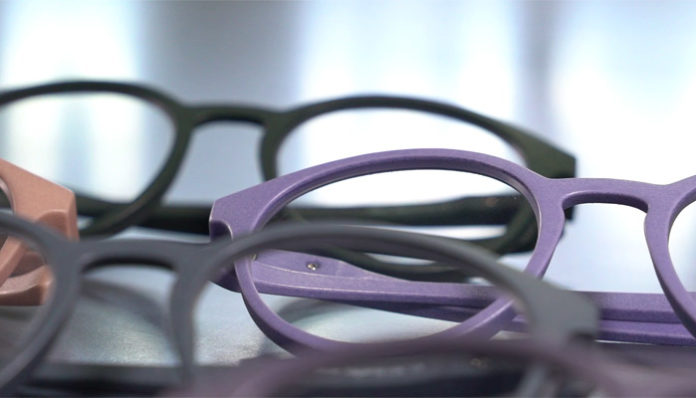Our latest edition of 3D ADEPT Mag, dedicated to sustainability and climate change actions within the AM industry, reveals that one of the important methods that can help assess a sustainability strategy is the Life Cycle Analysis (LCA).
For those who are not familiar with it, it is a method that consists in evaluating the environmental impact of a product through its life cycle encompassing extraction and processing of the raw materials, manufacturing, distribution, use, recycling, and final disposal.
The LCA can be performed in all vertical industries and for all products. In the AM industry, it often helps manufacturers quantify how sustainable AM is, compared to conventional manufacturing processes.
The latest example that reveals how industrial 3D printing can be sustainable has been shared by EOS. In collaboration with eyewear brand YOU MAWO, and research institute Fraunhofer EMI , a team from these organizations conducted a study environmental impact of additively and conventionally manufactured eyewear, covering the life cycle from material sourcing, to production to packaging and shipping.
While the study excluded the use phase, it should be noted that it included a hotspot analysis to identify major contributors and potential for improvement, including powder refresh rates, powder feedstock, and energy sources used.
The study concluded that 3D printed eyewear performs significantly better than the conventional eyewear in all 18 impact categories, such as climate change, human toxicity, ozone depletion, and water depletion. As an example, the carbon footprint of a customized, 3D printed YOU MAWO eyewear product is around 58 percent lower compared to conventionally manufactured eyewear. The analysis also concluded that 3D printed eyewear compared to conventionally manufactured Acetate eyewear, creates 80 percent less waste and can help to avoid lengthy post processing. All YOU MAWO locations are powered with renewable energies. The study reveals more potential for improvement, such as a further reduction in the powder refresh rate, the further development of powders with a lower footprint (e.g., bio-based) and less expensive packaging, a press release notes.
Made locally in Germany and customized
Sebastian Zenetti, Managing Director and Head of Sales at YOU MAWO, adds:”Together with EOS, we are creating the future of custom-made, 3D printed eyewear. The EOS technology convinced us as it meets our high-quality, low scrap rate criteria. It supports our strive for sustainable production and products.” And he continues: “As the technology enables the design and manufacturing of highly individualized eyewear, it also helps us to avoid overproduction, minimize supply chains and enable on demand production.”
Altogether, the 3D printing-based eyewear frame production offered by YOU MAWO, based on EOS technology produces three times less CO2 emissions than a traditionally produced pair of glasses. Since 2021, the company has set up their own production and assembly in Germany. All production equipment, the basic materials and all consumables in the finishing and dyeing process come from Germany.
Lastly, from a consumer perspective, it should be noted that eyewear is a very personal and emotional topic and over the years has developed into a fashion statement too. It is a daily, if not life-long companion for many. In an era where consumers are increasingly looking for products that are environmental-friendly, having a pair of glasses that are of high quality, while delivering comfort and stability, this scenario reveals that on can easily relied on AM to meet all of these requirements.
Remember, you can post job opportunities in the AM Industry on 3D ADEPT Media free of charge or look for a job via our job board. Make sure to follow us on our social networks and subscribe to our weekly newsletter : Facebook, Twitter, LinkedIn & Instagram ! If you want to be featured in the next issue of our digital magazine or if you hear a story that needs to be heard, make sure you send it to contact@3dadept.com






